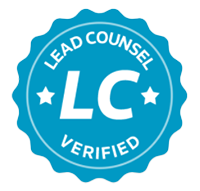Anesthesia Malpractice Lawyers in New Jersey
Aggressive Advocacy for Victims of Life-Altering Medical Errors
Anesthesia plays a vital role in modern healthcare, allowing patients to undergo surgeries and procedures without pain or awareness. However, when administered or monitored improperly, anesthesia can turn a routine operation into a catastrophic event. At The Law Office of Miller & Gaudio PC, we represent individuals and families devastated by anesthesia malpractice. With decades of legal experience and a strong track record in medical negligence cases, we fight to hold careless medical professionals and institutions accountable for preventable harm.
If you or a loved one experienced complications after surgery and suspect an anesthesia error, you are not alone—and you may have a case.
What Is Anesthesia Malpractice?
The Critical Role of Anesthesia in Surgery
Anesthesia is more than simply “putting a patient to sleep.” It is a sophisticated, high-risk component of medical care that requires ongoing evaluation, dosing, monitoring, and adjustment. It is used during surgeries, diagnostic tests, and dental procedures to ensure patients remain pain-free, unconscious, or sedated, depending on the type of anesthesia administered.
When Does an Anesthesia Error Become Malpractice?
Anesthesia malpractice occurs when a healthcare provider fails to meet the standard of care expected of trained professionals in the field. This can involve poor decision-making, delayed reactions to complications, inadequate monitoring, or communication failures among the medical team.
If that failure directly results in patient injury—or in tragic cases, death—it may form the basis of a medical malpractice claim.
The Most Common Types of Anesthesia Errors
1. Miscalculated Dosage
Incorrect dosage remains one of the most frequent causes of anesthesia-related complications. Too much anesthetic can result in overdose, respiratory failure, or cardiac arrest. Too little can cause the patient to wake up during the procedure, a traumatic experience known as “anesthesia awareness.”
2. Failure to Monitor Vital Signs
One of the core responsibilities of an anesthesiologist is to continuously monitor the patient’s vital functions, including heart rate, oxygen levels, and blood pressure. A momentary lapse in attention can allow a treatable complication to spiral into a critical emergency, such as brain injury from prolonged oxygen deprivation.
3. Intubation Mistakes and Airway Mismanagement
Patients under general anesthesia require a secured airway to breathe properly. If intubation is done improperly, or if tubes become dislodged and go unnoticed, the patient may suffer hypoxia, cardiac complications, or death.
4. Preoperative Oversights and Risk Factors
Neglecting to check a patient’s medical history, drug allergies, or existing conditions can significantly increase the risk of adverse reactions. Administering anesthesia without these assessments is a breach of basic medical protocol.
5. Delayed Reaction to Complications
When complications occur—such as a sudden drop in oxygen saturation or signs of distress—the anesthesiologist must act immediately. A delay of even a few seconds can mean the difference between recovery and lifelong disability.
Who Can Be Affected by Anesthesia Malpractice?
Adult Surgical Patients
Most anesthesia malpractice claims arise from standard surgical settings, where patients rely entirely on the expertise of the operating team. These individuals often suffer injuries such as brain damage, stroke, or respiratory collapse.
Pediatric Patients
Children are more vulnerable to dosage errors, allergic reactions, and airway issues. Pediatric anesthesia requires specialized training and experience. Errors in this context are tragically common and particularly devastating.
Dental and Outpatient Patients
Malpractice is not limited to hospitals. Many injuries occur in outpatient clinics, dental offices, and cosmetic surgery centers where emergency resources are limited. Inexperienced or underqualified providers can cause serious harm during relatively minor procedures.
Types of Injuries Caused by Anesthesia Negligence
- Brain Injuries and Permanent Neurological Damage
Brain injuries are among the most severe consequences of anesthesia malpractice. They occur when the brain is deprived of oxygen (anoxia or hypoxia) due to poor airway management or unnoticed cardiovascular distress. These injuries can leave victims with long-term disabilities such as speech loss, mobility impairment, cognitive decline, or coma.
- Heart Failure and Cardiac Arrest
Improper drug administration or reaction to anesthesia can cause the patient’s heart to stop, either temporarily or permanently. This is often fatal or leads to major health complications.
- Nerve Damage and Physical Disabilities
When anesthetized patients are improperly positioned for long procedures or inadequately monitored, they may suffer nerve compression, muscle damage, or paralysis. These injuries can require lifelong therapy and surgeries.
- Emotional and Psychological Harm
Anesthesia awareness—waking up during surgery without the ability to move or speak—is a traumatic event that leaves lasting emotional scars. Victims often report severe PTSD, anxiety, and sleep disorders.
- Wrongful Death
In cases where errors are severe and untreated, the patient may die during or shortly after the procedure. Families are left devastated and deserve justice for the preventable loss of a loved one.
Establishing Liability in Anesthesia Malpractice Cases
Direct Liability of Anesthesiologists and CRNAs
Anesthesiologists and certified registered nurse anesthetists (CRNAs) are held to high professional standards. Failure to monitor the patient, misreading vital signs, or acting too late can make them directly liable.
The Role of Surgeons and Operative Staff
While anesthesiologists lead anesthesia care, the attending surgeon may share responsibility, especially if they failed to alert the anesthetic team to crucial information or didn’t communicate during the procedure.
Hospital and Facility Negligence
Healthcare institutions can be liable for hiring underqualified staff, failing to maintain necessary equipment, understaffing, or providing poor training. In some cases, system-wide failures reflect broader negligence that extends beyond individual providers.
The Legal Process: How to File a Claim
Step 1: Legal Consultation
Your journey begins with a free, confidential consultation with our attorneys. We listen to your story, assess the medical records you provide, and determine whether negligence may have occurred.
Step 2: Medical Record Review and Expert Collaboration
Our firm collaborates with board-certified medical experts who assess whether your care deviated from accepted standards. These experts provide opinions critical to the success of your case.
Step 3: Filing a Lawsuit
We prepare and file a formal complaint in court outlining the defendants’ actions, the injuries sustained, and the damages sought. The complaint initiates the legal process and triggers discovery.
Step 4: Discovery, Negotiation, and Trial
We gather evidence, take depositions, and consult additional experts. We aggressively negotiate with the defense and pursue trial when a fair settlement isn’t offered. Throughout, we fight to make your voice heard.
Statute of Limitations in New Jersey
In New Jersey, most medical malpractice claims must be filed within two years of the date of injury or its discovery. Delays beyond this window may bar your claim entirely.
Compensation: What Can You Recover?
Medical Expenses
You may be entitled to full coverage of past, present, and anticipated medical costs. This includes hospital stays, follow-up surgeries, rehabilitation, medications, assistive equipment, and home care.
Lost Income and Future Earning Capacity
Many anesthesia injuries result in long-term or permanent disability, affecting your ability to earn a living. We calculate both immediate wage loss and your diminished earning potential.
Pain, Suffering, and Emotional Distress
Compensation may also be awarded for the physical pain and emotional suffering caused by your injuries. This includes anxiety, trauma, loss of independence, and reduced quality of life.
Compensation for Families in Wrongful Death Cases
Surviving families may be entitled to compensation for funeral expenses, loss of companionship, emotional grief, and financial support that the deceased would have provided.
Types of Anesthesia Cases We Handle
- Surgical anesthesia errors during general procedures
- Pediatric anesthesia injuries in hospitals or clinics
- Dental anesthesia malpractice in outpatient care
- Brain injuries resulting from anesthesia overdose or airway mismanagement
- Cases of anesthesia awareness and emotional trauma
- Wrongful death caused by anesthesia complications
Why Choose The Law Office of Miller & Gaudio PC?
Decades of Malpractice Litigation Experience
For over 30 years, our firm has successfully litigated complex medical malpractice cases throughout New Jersey. We understand how to navigate both the legal and medical aspects of anesthesia-related claims.
Access to Leading Medical Experts
We partner with anesthesiologists, surgeons, and healthcare analysts nationwide who can provide authoritative testimony and help us build ironclad cases.
Compassionate, Client-First Representation
We know the toll this kind of injury takes. That’s why we communicate clearly, act decisively, and make your goals our top priority. You’re not just another case file—you’re a person who deserves justice.
Real Results, Real Support
We have secured substantial settlements and verdicts for clients injured by medical negligence. Our firm is known for thorough case preparation, aggressive negotiation, and willingness to take complex cases to trial.
Frequently Asked Questions (FAQ) About Anesthesia Malpractice
What is considered anesthesia malpractice?
Anesthesia malpractice occurs when an anesthesiologist or other medical provider fails to meet the professional standard of care while administering or monitoring anesthesia, and that failure causes injury or death. Examples include incorrect dosage, failure to monitor vital signs, delayed reaction to complications, and improper intubation.
Can I sue if I woke up during surgery?
Yes. Waking up during surgery—known as anesthesia awareness—is a serious and traumatic event. If it resulted from negligence, such as administering too little anesthesia or failing to monitor properly, you may be eligible to file a malpractice claim and seek compensation for pain, suffering, and emotional trauma.
What kinds of injuries are caused by anesthesia errors?
Anesthesia errors can lead to a wide range of injuries, including brain damage, cardiac arrest, respiratory failure, nerve damage, anesthesia awareness, and even death. These injuries may have long-term effects on a person’s physical and cognitive function.
How do I know if the anesthesiologist was at fault?
Determining fault requires a detailed legal and medical review of your case. Our firm works with medical experts who evaluate whether the care provided met accepted standards. If the anesthesiologist or another party failed in their responsibilities, they may be held liable.
Is the hospital or clinic responsible for anesthesia malpractice?
Sometimes. Hospitals, surgical centers, or dental offices may be held responsible if institutional failures—such as inadequate staffing, improper training, or equipment malfunction—contributed to the error. Our legal team evaluates all potential sources of liability.
Contact The Law Office of Miller & Gaudio PC Today
If you or a loved one suffered serious harm due to an anesthesia error, we are here to help. Contact The Law Office of Miller & Gaudio PC today to schedule your free, no-obligation consultation. We will explain your rights, evaluate your case, and outline the next steps to hold the responsible parties accountable.
We serve clients across New Jersey and offer virtual appointments upon request. Let us help you reclaim your future with skillful, strategic, and compassionate legal support.


